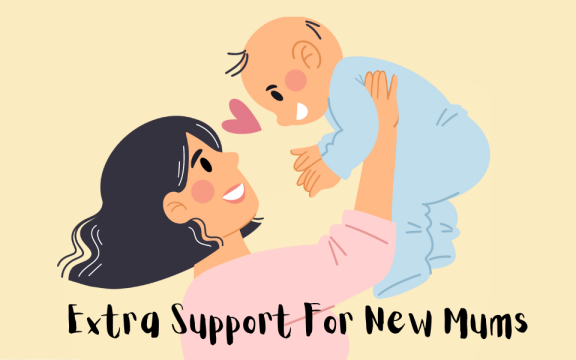
Extra breastfeeding support is coming to new mums thanks to a £183,000 grant.
The funding comes from the Family Hub grant received from the Department for Education, and it will expand on the existing infant feeding support by providing ELHT with more infant feeding support workers on the postnatal ward at weekends and in the community in Blackburn with Darwen.
This will work towards the goal of boosting ongoing breastfeeding rates as well as growing the rates of new mums starting to breastfeed.
The support workers will also be available once mum and baby get home, checking in during the early post natal period and up to 6 to 8 weeks. Our data tells us that women stop breast feeding on discharge from hospital, in the first 48 hours, from 10 to 14 days and 6 to 8 weeks, so providing additional support by contact at this point should help more mothers to continue breast feeding.
The move will help more new mums to breastfeed their babies and will build on the current infant feeding support service at Lancashire Women and Newborn Centre at Burnley Hospital and Blackburn Birth Centre.
Blackburn with Darwen have positive breastfeeding initiation rates, currently ranging from 72% to 78%, however, there is a drop at six to eight weeks of 45% to 50%.
Included in the support is:
- All parents and carers will have the information, practical advice and support they need (including weekends) to support breastfeeding initiation and continuation, expressing breastmilk, and/or formula feeding where that is more appropriate.
- Parents will be supported as early as possible to help them understand the benefits of breastfeeding and how to access the support available to them, helping to reduce inequalities.
- The Infant feeding support workers will demonstrate an awareness of the needs of families with protected characteristics, such as disability, race, sex and sexual orientation.
- Improved outcomes for mothers and babies, including child health and cognitive development, maternal health, and mother-infant bonding.
Blackburn with Darwen has recently been re-awarded the UNICEF Baby Friendly Gold Award for its work and support around breastfeeding in the borough, and we officially became a Breastfeeding Friendly Borough in 2018. East Lancashire Hospitals NHS Trust (ELHT) became the first NHS Trust in the country to achieve UNICEF Baby Friendly ‘Gold Standard’ in 2017.
Feedback from mothers has demonstrated that this has made them feel more confident to breastfeed.
Other projects and innovations to support breastfeeding in BwD include major local events to celebrate Breastfeeding Awareness week, Breastfeeding Friendly places across the borough, community parents and peer supporters from with all communities, expansion of the peer support service to seven, free loan of breasts pumps and expansion of the sling library.
Professor Abdul Razaq, Director of Public Health at Blackburn with Darwen Council, said:
"We are a Breastfeeding Friendly borough and have been re-validated the Unicef Baby Friendly Initiative Gold award. This new funding is fantastic news and will hugely assist the support available to new mothers in Blackburn with Darwen to help them initiate and sustain breastfeeding. The extended service offer is a way to make sure we can support breastfeeding in the borough even further.
Breastfeeding has a huge range of benefits to both mum and baby, including protecting babies against a wide range of serious illnesses, and we want to make sure working with the East Lancashire Hospitals NHS Trust and the Family Hubs, that we continue to give the best support possible."
Maria Nugent, Service lead for Early Years and Out of School settings, said:
"The Family Hub grant has enabled Blackburn with Darwen, in partnership with East Lancashire Hospital Trust, to expand our Infant feeding support service to offer seven day advice on the wards and the birthing unit.
Breast milk is the most nutritious source of food for infants and has numerous health benefits for both mother and baby, including improved child health and cognitive development, maternal health, and mother-infant bonding. Providing infant feeding support, including practical help with breastfeeding and help with safe and responsible formula feeding where that is more appropriate will benefit the whole family.”
